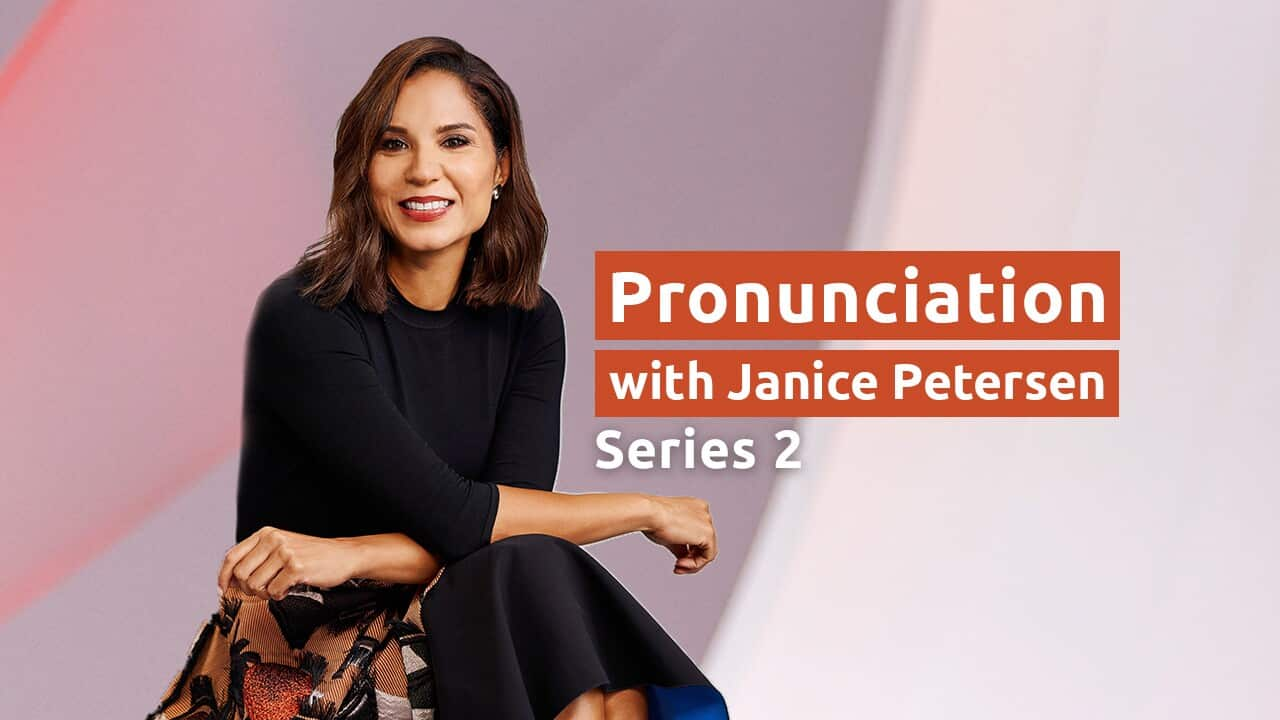Key Points
- Learning objectives: Can pronounce /r/ and /v/.
- First language influence: Somali, Dinka, Vietnamese, Mandarin, Russian, Thai, Korean, Japanese, and many L1 Arabic dialects do not have the /v/ sound. /v/ may be mispronounced by Lao, Khmer, Malay, and Pashto speakers. Some Russian and Swahili speakers can be prone to trill the /r/ sound. Turkish has three varieties of r that is dissimilar to /r/ so is overpronounced when read aloud. /r/ may be mispronounced by Thai and Lao speakers.
- Text for practise: Roses are red, Violets are blue, I love vegemite, And fried rice too.
- Minimal Pairs: /r/ ran, rest, real, rote, rain /v/ van, vest, veal, vote, vain.
This lesson suits all learners at all levels.
Check out the rest of Season 2

Improve your pronunciation | Season 2
If you missed the first season of our popular podcast, now's your chance to catch up!

Improve your pronunciation | Season 1
Transcript:
(Note: This is not a word-for-word transcript)
Hi. I’m Janice Petersen from SBS World News and I’m here to help you improve your English pronunciation.
Every day, when reporting the news, I need to be very aware about how I pronounce words. Even if you practise just a little bit each day it can help.
This short lesson is only about 5 minutes so you can easily fit it into your day… perhaps on your lunch break?
Because I can get very busy at work, I usually bring my lunch. Sometimes I’ll bring fried rice that I’ve cooked the night before, and sometimes, if I’m really busy, I’ll just have a vegemite sandwich.
Do you like vegemite? Or fried rice? Or, like me, you might love to eat both! Vegemite and fried rice are also great examples of the sounds /r/ and /v/.
Today we are going to practise these sounds with a poem. The first two lines are usually used to make a love poem. So, I think they fit well with things I love to eat. Have a listen…
Roses are red,
Violets are blue,
I love vegemite,
And fried rice too!
Did you know that /r/ and /v/ are some of the most mispronounced sounds?
This is because some languages like Mandarin, Korean and Vietnamese don’t have the /v/ sound. And Turkish has three varieties of the letter R [ar] that are all different to /r/!
Let’s start by comparing the sounds in these word pairs.
- Ran van
- Rest vest
- Real veal
- Rote vote
- Rain vain
Can you hear the difference?
Now, let’s work on how to pronounce these sounds. Start by imagining a pirate - arrrrr.
When you make this sound, the sides of the back of your tongue should touch your bottom back teeth, and the tip of your tongue should be slightly curved but not touching your mouth or teeth. Your lips should be relaxed and slightly open.
Have a try:
- Rrrrrr…
- Ran
- Rest
- Real
The /v/ sound is made differently. Pretend you are biting your bottom lip and force the air out.
Have a go holding this sound for a few seconds and humming like a bee: vvvvv. Let’s try together:
- Van
- Vest
- Veal
Both the /r/ and the /v/ sound are voiced, so if you put your hand on your throat, you’ll feel it vibrating.
Try putting your hand on your throat and saying both sounds: Rrrrrr vvvvvv. Can you feel the different vibrations they make?
Let’s have a go practicing these sounds in the word pairs:
- Ran van
- Rest vest
- Real veal
- Rote vote
- Rain vain
OK, today we are visiting the Mosman Council Conversation Class. Let’s hear from them…
Students
Roses are red,
Violets are blue,
I love vegemite,
And fried rice too
They did well, didn’t they!
Great work! You’ve just learnt and practised the difference between the /r/ and /v/ sounds.
I’m off to have lunch now… this lesson has made me hungry!
CREDITS
Thanks to our educational consultant, Natalie Oostergo from IES College and learners from the Mosman Council Conversation Class.











